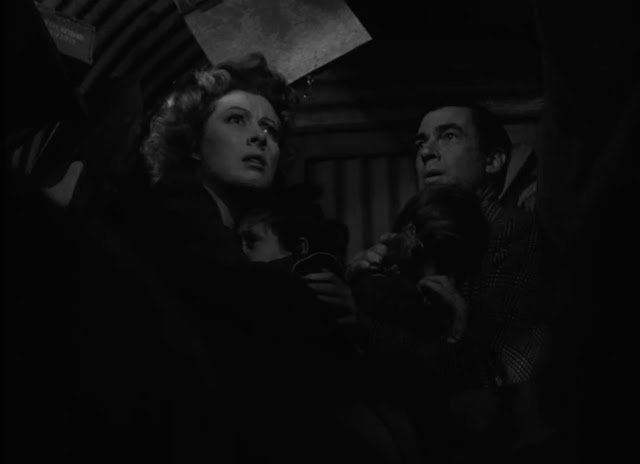February 13, 2015
Mrs. Miniver
At this point I feel like a broken record. I've yammered on and on about how this film or this movie got this nomination or this win because of its timeliness etc. so I will keep it curt this time around: I didn't like Mrs. Miniver.
My first impression of Mrs. Miniver was that it was a rather long movie. My second impression was that it seemed to be a really long movie telling a rather drawn-out story about...nothing of note. We are essentially spending 133 minutes watching a very rich and very white family be affected by World War II. Nothing wrong with that really, but I do ask: who cares? Perhaps I'm too heavily biased with my modernistic ideology towards these kinds of things, but I am simply not interested in seeing a bunch of rich sophisticates have their worlds ~turned upside down~ by war.
But I get it. MGM was all about luxe. Affluence was what people paid to see so that they could be whisked away from their harsher realities if only for a little over two hours. But it just doesn't translate as compelling through my own 21st century mindset. It felt a little insulting that this kind of imagery--Walter Pidgeon and Greer Garson dressed glamorously and lit beautifully and clutching each other in their fancy boudoir--was supposed to be representative of how the public was feeling during wartime. In other words, the film tries blatantly to address the message--"look at how war is damaging these people's lives!!" but is so dreadfully superficial in its attempt that I'm more put off by the film than I am engaged. Mrs. Miniver herself is supposed to be this modern woman, this heroine to whom the public is supposed to be able to relate to, and yet...I didn't care about her. More women out there were probably going through more hardships than what Mrs. Miniver actually endures throughout the course of the film. Most women don't spend a fortune on hats and get roses named after them. There's a disconnect here between real-life and Mrs. Miniver's fantasy glamour that I found really obnoxoius. I didn't care about Mrs. Miniver or Mr. Miniver or really anyone in the film, and that in and of itself makes the film a hard sell for me from the get-go.
And then, when at last the film is over, one last rancid cherry on top in the form of an intertitle reads: "AMERICA NEEDS YOUR MONEY. BUY DEFENSE BONDS AND STAMPS EVERY PAY DAY.", and it makes you realize that everything you've just seen...it's not so much because someone wanted to tell a story or someone wanted to create art. Rather, this film exists because the powers that be wanted to motivate people to support a war. It's just overall a rather dissatisfying experience. It's propaganda. Not a "bad" movie per se, but just really dissatisfying. And dull.
Labels:
Best Picture
Subscribe to:
Post Comments (Atom)






It should be seen once, but I know what you mean - it doesn't wear well. And you're not its only critic. Discerning Britishers too were mock-amused by its slathered-on nobility, and its idealized-to-absurd suggestion of middle class English life. MGM's Britain was one of Dame May Witty pouring endless tea, while C. Aubery Smith kept glasses brimming with fine old port.
ReplyDeleteThe juicy story to go with it was that during production Greer was getting it on with Richard Ney, a decade her junior, and playing her son in the film. They later married.
There's no denying the box office, though. It made a fortune and drew personal congratulations from Roosevelt and Churchill. It was gratefully regarded in England as powerful propaganda in their war effort.
And it was the darling of the Oscars. William Wyler with Dodsworth, These Three, Jezebel, Wuthering Heights, The Letter and The Little Foxes all behind him, was well due. If Actress had gone to Davis, there would have been plenty of aggrieved voters who likely would have compensated Greer the next year for Curie, just as Davis's Dangerous repaid Of Human Bondage, so it's okay that she won. And bearing in mind her work in Little Foxes and Shadow Of A Doubt, I'm okay with Theresa Wright too.
It's an extremely well-made film, worth seeing, but you're not likely to long to return to it again and again.
I don't hate it, but an oscar? Really?! ¬¬
ReplyDeleteSurprisingly, The Best Years of Our Lives has similarities, but it is a terrific film.